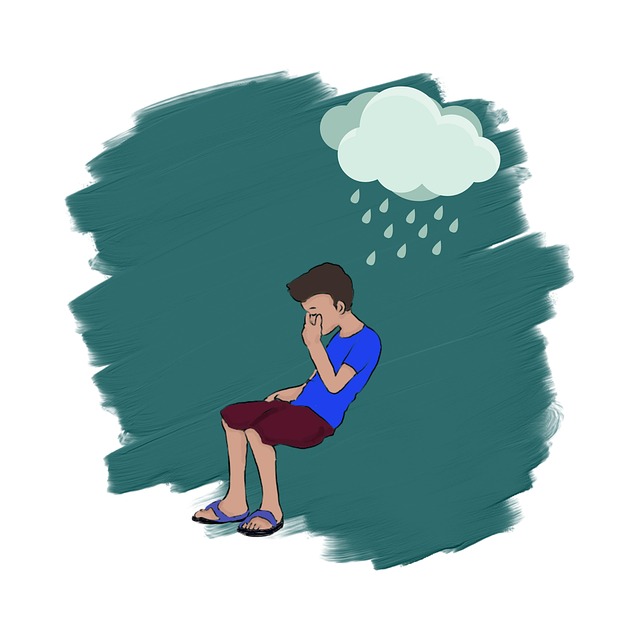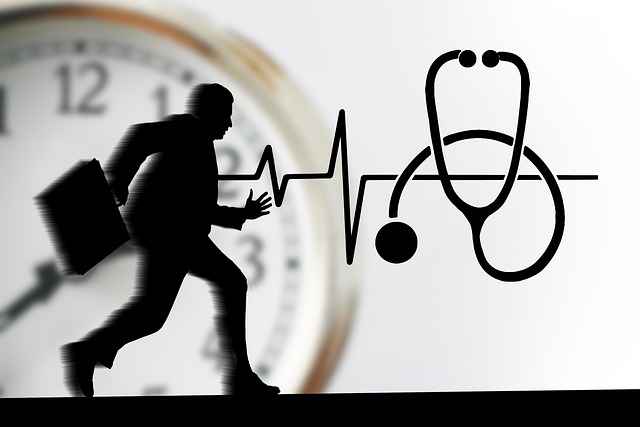Adult Adjustment Disorder (AAD) is a stress-related mental health condition characterized by severe anxiety, emotional dysregulation, and difficulties in daily functioning. Caused by genetic, early life, and environmental factors, AAD symptoms include persistent worry, irritability, sleep problems, concentration issues, and physical complaints. Effective therapy focuses on evidence-based practices like cognitive-behavioral therapy (CBT) and acceptance and commitment therapy (ACT), addressing underlying issues for improved mental wellness. Stress management strategies, including CBT, mindfulness, lifestyle changes, positive thinking, and building support systems, empower individuals to cope with AAD symptoms and promote long-term mental health.
Stress management techniques are essential tools for navigating life’s challenges, especially for individuals dealing with Adult Adjustment Disorder (AAD). This article delves into understanding AAD’s symptoms and causes, highlighting the profound impact of stress on mental health and daily functioning. We explore effective therapies like Cognitive Behavioral Therapy (CBT), mindfulness practices, and lifestyle adjustments, offering practical strategies to manage stress and promote well-being for those seeking treatment for AAD.
- Understanding Adult Adjustment Disorder: Symptoms and Causes
- The Impact of Stress on Mental Health and Daily Life
- Cognitive Behavioral Therapy (CBT): A Powerful Tool for Stress Management
- Mindfulness and Meditation Techniques to Reduce Stress
- Lifestyle Changes and Support Systems for Effective Stress Management
Understanding Adult Adjustment Disorder: Symptoms and Causes

Adult Adjustment Disorder (AAD) is a mental health condition that can significantly impact an individual’s daily life and overall well-being. It differs from other anxiety disorders in its specific set of symptoms, which often manifest as a result of traumatic or stressful life events. The disorder is characterized by feelings of severe stress and anxiety that are disproportionate to the situation, leading to difficulties in functioning at work, school, or home.
Symptoms can include persistent worry, irritability, insomnia, difficulty concentrating, and physical manifestations such as headaches, muscle tension, and fatigue. Individuals with AAD may also struggle with social withdrawal, substance abuse, or reckless behaviors as coping mechanisms. The causes of this disorder are multifaceted, often stemming from a combination of genetic predisposition, early life experiences, and environmental stressors. Recognizing the signs is crucial for initiating therapy, which typically involves cognitive-behavioral therapy (CBT), acceptance and commitment therapy (ACT), or other evidence-based approaches tailored to address the core issues. These therapies focus on teaching individuals effective coping strategies, helping them manage their symptoms, and enhancing their overall mental wellness.
The Impact of Stress on Mental Health and Daily Life

Stress is a ubiquitous aspect of modern life, yet its prolonged impact on mental health cannot be overlooked. It can manifest in various ways, from chronic fatigue and irritability to more severe conditions like Adjustment Disorder in adults. This disorder, characterized by intense emotional responses to stress, highlights the profound effect that persistent stress can have on one’s daily functioning and overall well-being. Understanding these connections is crucial for fostering Mental Health Awareness and promoting resilience.
The effects of stress permeate every aspect of our lives. In a bustling world where demands are ever-increasing, it’s easy to feel overwhelmed. Trauma Support Services play a vital role in providing tools and strategies for coping with these challenges. Empathy Building Strategies, when integrated into stress management techniques, can further enhance individuals’ ability to navigate stressful situations, fostering a sense of calm and control. By recognizing the impact of stress on both mental health and daily life, we can encourage proactive approaches to maintain a healthy balance.
Cognitive Behavioral Therapy (CBT): A Powerful Tool for Stress Management

Cognitive Behavioral Therapy (CBT) is a highly effective tool for managing stress and has been recognized as a valuable treatment for adults with adjustment disorders. This therapeutic approach focuses on identifying and changing negative thought patterns that contribute to distressing emotions and behaviors. By challenging these unhelpful thoughts, CBT empowers individuals to develop healthier coping strategies and cultivate positive thinking. The process involves learning to recognize cognitive distortions, such as all-or-nothing thinking or jumping to conclusions, and replacing them with more realistic and balanced perspectives.
Through CBT, clients acquire essential skills for depression prevention and stress reduction. It encourages active participation in managing one’s mental health by providing practical tools for coping with difficult situations. By gaining a deeper understanding of their thoughts and behaviors, individuals can make lasting changes to improve their overall well-being. This therapy is particularly effective as it equips people with the means to continue practicing positive thinking and developing coping skills long after the initial treatment sessions have concluded.
Mindfulness and Meditation Techniques to Reduce Stress

Mindfulness and meditation have emerged as powerful tools for managing stress, offering a calm haven within the bustling chaos of daily life. These practices encourage individuals to focus on the present moment, cultivating awareness of their thoughts and emotions without judgment. In terms of therapy for adults with adjustment disorder, mindfulness can be a game-changer, helping them navigate intense feelings and improve emotional regulation.
Through self-awareness exercises, meditation allows one to observe their stress responses and develop a deeper understanding of their triggers. This increased self-awareness facilitates the identification of unhealthy coping mechanisms and promotes healthier alternatives. Additionally, communication strategies taught alongside these practices can enhance interpersonal connections, further supporting individuals in managing stress effectively within their social circles.
Lifestyle Changes and Support Systems for Effective Stress Management

Lifestyle changes are a cornerstone of effective stress management. Encouraging individuals to prioritize self-care practices such as regular exercise, balanced nutrition, and adequate sleep can significantly enhance their ability to cope with stressful situations. Incorporating mindfulness techniques, like meditation or deep breathing exercises, can also help in cultivating a sense of calm and mental resilience. Moreover, fostering positive thinking through cognitive reframing and setting realistic goals can empower individuals to view challenges as opportunities for growth rather than sources of stress.
Building robust support systems is equally vital. Strong social connections provide emotional validation and practical assistance during stressful times. Encouraging individuals to cultivate healthy relationships with friends, family, or support groups can serve as a buffer against the detrimental effects of chronic stress. For those struggling with adjustment disorders, therapy for adults can be instrumental in developing coping strategies tailored to their unique needs. Integrating mind over matter principles and risk management planning into treatment protocols for mental health professionals ensures comprehensive care that addresses both symptoms and underlying causes, fostering lasting positive changes.
Stress management techniques are essential tools for navigating life’s challenges, especially for individuals dealing with Adult Adjustment Disorder. By understanding the impact of stress on mental health and incorporating evidence-based approaches like Cognitive Behavioral Therapy (CBT) and mindfulness practices, one can effectively manage symptoms and improve overall well-being. Additionally, fostering support systems and implementing positive lifestyle changes are game-changers in the quest for a balanced and fulfilling life. Remember that managing stress is a personal journey; what works best varies from person to person, so take a dive into these techniques to find your unique path to resilience.











